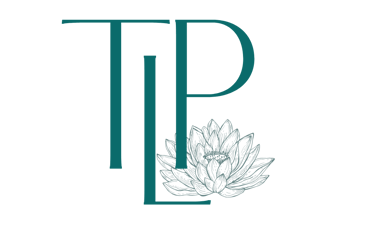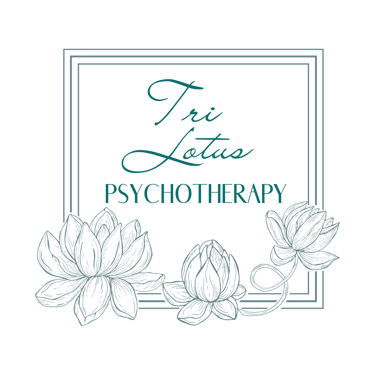NOW ACCEPTING NEW CLIENTS: In-Person in Calgary & Online across Alberta Book a Free 20min Introductory Call! CLIENT LOGIN
What to Expect from Counselling
A blog post written by a licensed Calgary therapist outlining what to expect from counselling.
ABOUT THERAPY
Kaylee Procter
1/3/2024


What to Expect from Counselling
Insights from a Calgary Therapist
“Sometimes the bravest and most important thing you can do is just show up” (Brene Brown).
That’s how I feel about therapy – just booking an appointment and/or getting through the door is a great act of courage. It shows that you’re willing to put yourself first, begin the healing journey, and start building a life that you feel fulfilled by.
This blog post outlines what you can expect when starting therapy to hopefully make it feel a little less daunting.
So, what can you expect when starting therapy? Here is a helpful list:
·It may take time to get comfortable with your therapist. We know that the therapeutic relationship is the strongest agent for change in therapy; therefore, it’s important that you connect with your psychologist.
It might be hard to open up at first. Expecting to immediately feel comfortable enough to be vulnerable with a stranger is not necessarily reasonable. Typically, rapport needs to be built first. This is the reason why, us at Tri Lotus Psychotherapy, prioritize building a safe and compassionate environment.
Things may feel a slightly worse before they get better. As we talk about our difficult emotions, sometimes it drums up difficult memories, events, or other emotions. This is necessary for healing, as we know “what we resist persists.” There is also a risk associated with not attending psychotherapy as well. However, always try your best to communicate your feelings with your psychologist throughout to ensure that what you are experiencing is a normal part of the process.
Your first session is always centred on getting to know you. This allows for the building of rapport that we spoke about earlier, but also for your psychologist to get a good sense of what brings you to therapy, what your life looks like, and your struggles. This information allows for them to create a case conceptualization, which will inform how they will work with you and help to alleviate your concerns.
You can take your time during therapy, choosing what you’re comfortable to discuss and what you’re not. While your psychologist may gently challenge you (down the line in therapy) if there may be something keeping you stuck, you will never be forced to talk about anything you don’t want to talk about.
Psychotherapy doesn’t have to be forever. Some people come for a certain period to work on a specific issue they are facing, whereas some choose to come continually for mental health maintenance. The choice is completely up to you and can be discussed further with your psychologist.
When coming with a specific issue to address, your psychologist will create a treatment plan that will inform therapy. This will be reviewed with you and worked on collaboratively. Typically, it will take between 1-3 sessions for your psychologist to gain enough information to create the treatment plan.
Skill-Building and Coping Strategies may be a priority. Practical skills and coping strategies are often provided, depending on the reason for attending counselling. Expect to learn tools that can empower you to navigate life's challenges more effectively.
Feedback and reflection is part of it. Therapists will often offer constructive feedback, but in a gentle manner. Expect your therapist to gently challenge unhelpful patterns or beliefs, encouraging personal development.
Cultural Sensitivity is a priority. Your therapist will respect and understand cultural diversity. Expect culturally sensitive and inclusive approaches that honour your background and identity.
Empowerment and autonomy is encouraged. Ultimately, counselling is about empowering you. Expect to develop a greater sense of autonomy, self-awareness, and the ability to navigate life's challenges with resilience. With that being said, counselling is not about obtaining advice; it is about empowering you to find the answers that best fit your needs with the helpful guidance from a psychologist.
Everything that is said in counselling will remain confidential. However, there are some limits to that. Click here for the frequently asked questions about therapy page to gain more information on these limits.
Remember, every therapeutic experience is unique, and it's okay to communicate your expectations and preferences with your psychologist to ensure counselling is meeting your needs. However, the list above provides some insight into what you can expect when booking an appointment with Tri Lotus Psychotherapy.
Let's Connect
Please fill out the form to request an initial appointment
or complimentary introductory call
Contact
hello@trilotustherapy.com
Clinic Hours
Monday: 5:00pm to 8:00pm
Tuesday: 1:00pm to 8:00pm
Wednesday: 8:00am to 8:00pm
Thursday: 8:00am to 8:00pm
Friday: 11:30am to 4:30pm
Saturday: 9:00am to 3:00pm
Copyright © 2025 by Tri Lotus Psychotherapy - All Rights Reserved


Land Acknowledgment: I gratefully acknowledge and honour that where I live, work and play is within the traditional territories of the people of the Treaty 7 region in Southern Alberta, which includes the Blackfoot Confederacy (comprising the Siksika, Piikani, and Kainai First Nations) as well as the Tsuut’ina First Nation, and the Stoney Nakoda (including the Chiniki, Bearspaw, and Wesley First Nations); and Métis Nation of Alberta, Region 3. The traditional Blackfoot name of this place is “Mohkinstsis”, which is also known now as Calgary.

